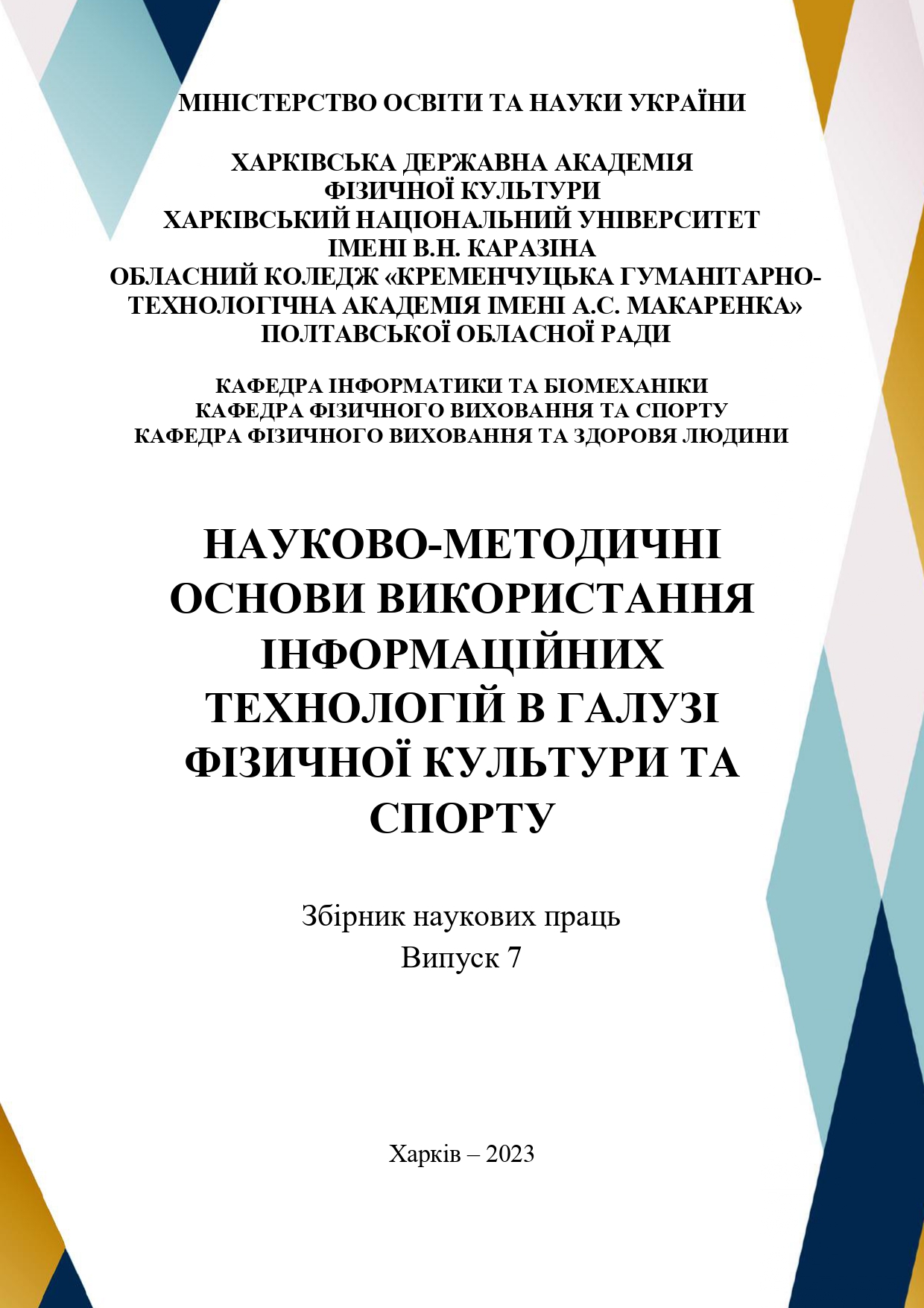ОПТИМІЗАЦІЯ РОБОТИ СИСТЕМИ ДИСТАНЦІЙНОЇ НАВЧАННЯ ХАРКІВСЬКОЇ ДЕРЖАВНОЇ АКАДЕМІЇ ФІЗИЧНОЇ КУЛЬТУРИ
Abstract
The article analyzes and gives examples of the creation of electronic training courses using the Moodle distance learning system for the purpose of training students of higher education in on-line mode.
References
Ашанін, В.С., Філенко, Л.В., Церковна, О.В., Іліджев, О.В. (2013). Інформатизація методів наукових досліджень в фізичному вихованні та спорті засобами інтерактивних технологій. Materialy IХ konferencji «Strategiczne pytania swiatowej nauki – 2013». V.31.Polska. 39-46.
Концепція розвитку дистанційної освіти в Україні (затверджено Постановою МОН України В.Г. Кременем 20 грудня 2000 р.) http://www.osvita.org.ua/distance/pravo/00.html
Кравченко, Л., Скляров, Д. (2001). Удосконалення сучасної системи підготовки фахівців у вузах фізичної культури засобами комп’ютерних методів навчання і тестування. Молода спортивна наука України. Львів. В.5. Т1. 97-98.
Морзе, Н. В., Глазунова, О. Г. (2009). Критерії якості електронних навчальних курсів, розроблених на базі платформ дистанційного навчання. Інформаційні технології в освіті. № 4. 63-75.
Церковная, Е.В., Филенко, Л.В., Строкач, С.Г. (2017). Использование сервисов Google в учебном процессе. Науково-методичні основи використання інформаційних технологій в галузі фізичної культури та спорту: збірник наукових праць. 117-120.
Чусова, О.М., Ваколя, З.М., Чейпеш, І.В. (2021). Педагогічні основи дистанційного навчання. Педагогічні науки: реалії та перспективи. Вип. 80. Т.2. 167-170.
Feldman, J., Monteserin, A., Amandi, A. (2014). Detecting students' perception style by using games. Computers & Education, 71, 14-22. [http://www.sciencedirect.com/science/article/pii/S0360131513002625]
Forbesa, D., Khoob, E. (2015). Voice over distance: a case of podcasting for learning in online teacher education learning in online teacher education.
Distance Education, 36(3), 335-350. [http://www.tandfonline.com/doi/abs/10.1080/01587919.2015.1084074]
Hwang, G.J., Chang, H.F. (2011). A formative assessment-based mobile learning approach to improving the learning attitudes and achievements of students. Computers & Education, 56 (1), 1023–1031.
Downloads
Published
Issue
Section
License
Authors who publish with this journal agree to the following terms:- Authors retain copyright and grant the journal right of first publication with the work simultaneously licensed under a Creative Commons Attribution License that allows others to share the work with an acknowledgement of the work's authorship and initial publication in this journal.
- Authors are able to enter into separate, additional contractual arrangements for the non-exclusive distribution of the journal's published version of the work (e.g., post it to an institutional repository or publish it in a book), with an acknowledgement of its initial publication in this journal.
- Authors are permitted and encouraged to post their work online (e.g., in institutional repositories or on their website) prior to and during the submission process, as it can lead to productive exchanges, as well as earlier and greater citation of published work (See The Effect of Open Access).

